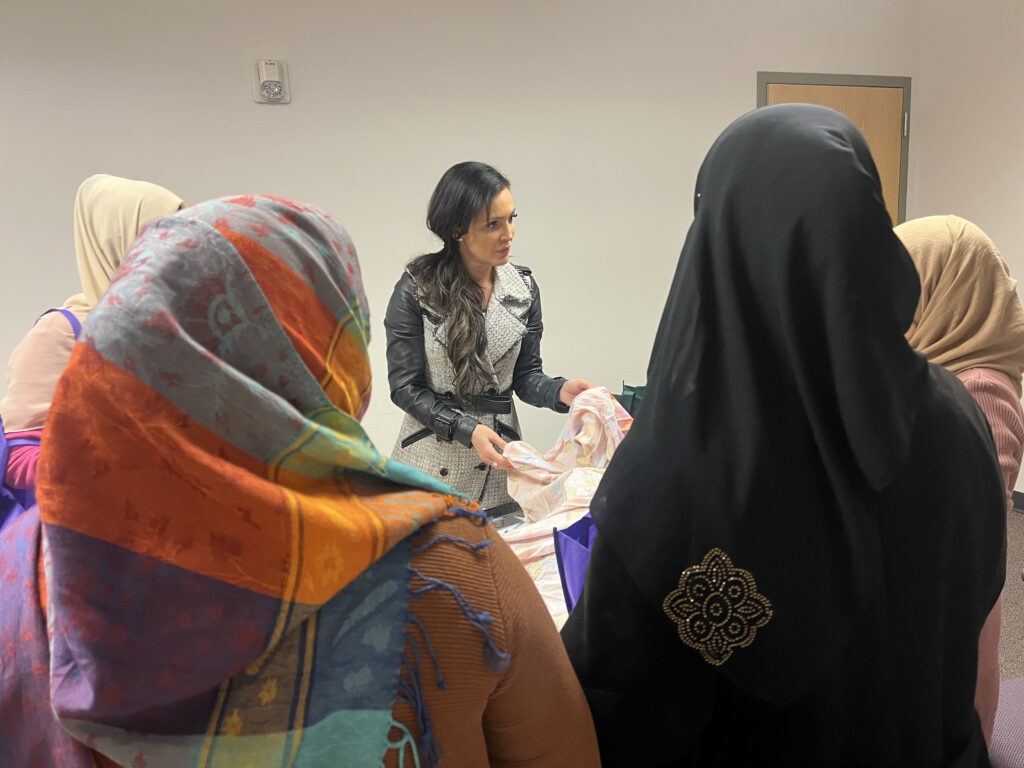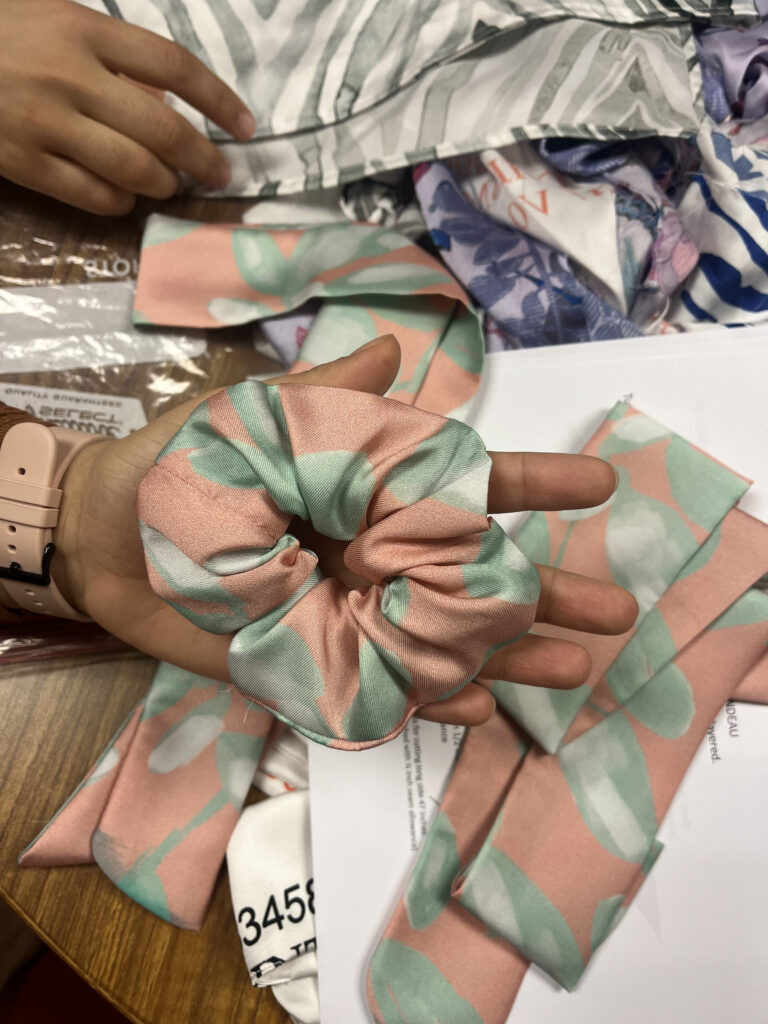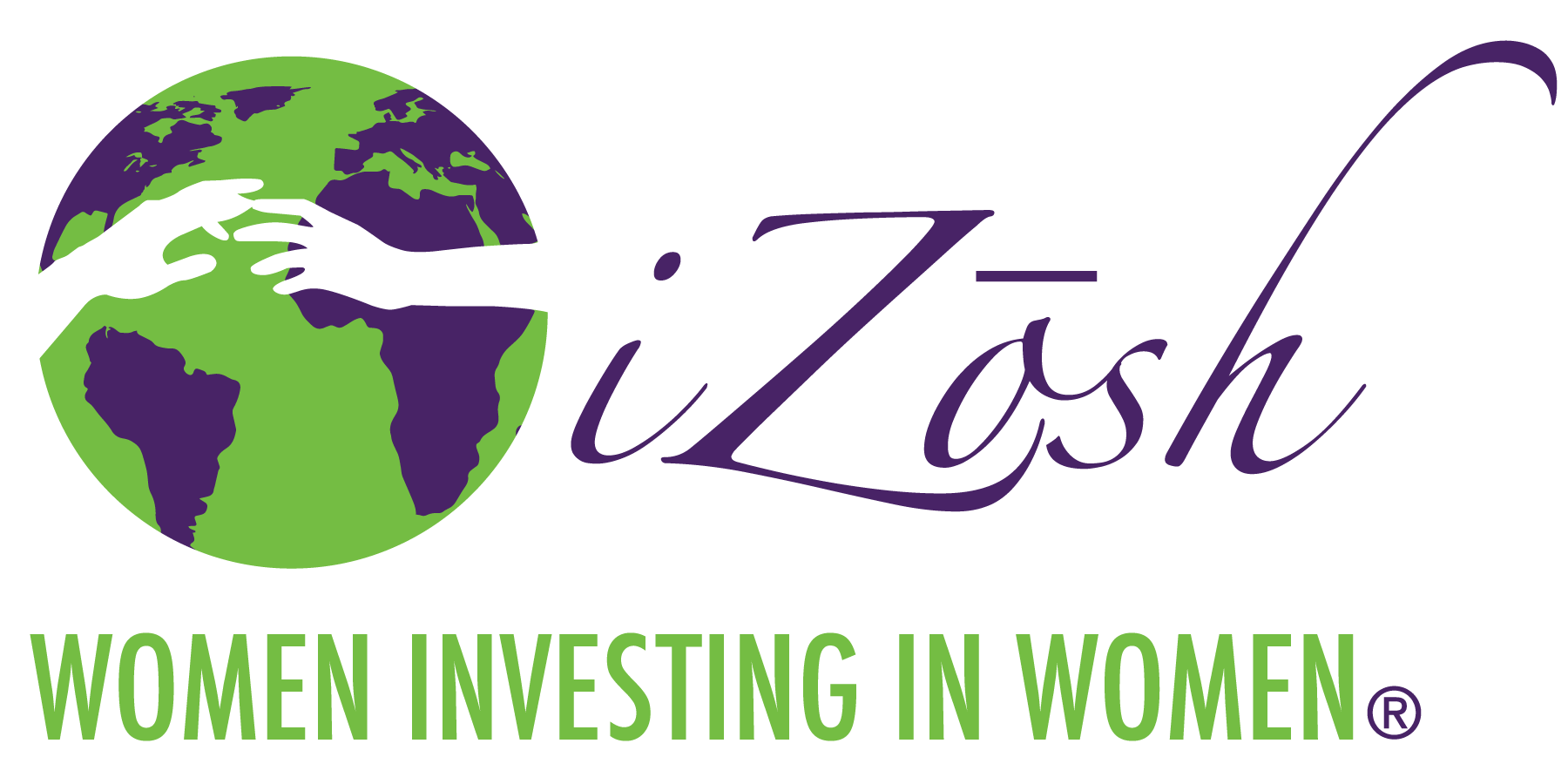Written by Amy Kuhl, iZōsh International Media Manager. Amy has been part of iZōsh International for a year and also works with World Relief as their Resiliency Programs Manager based in Washington. She has spent nearly a decade overseas living at the edge of war and crisis zones, supporting refugees and displaced people. Her passion is in supporting the inherent resilience of people, especially women, as they bravely choose to rebuild their lives after hardship and pursue their dreams.
It is estimated that a typical adult makes approximately 35,000 conscious decisions every day. Each of those decisions has an impact, whether it be small or large.
We make decisions about what to wear, how we spend our time and our money, how we interact with the world around us, and how we care for and build up the people in our communities and across the world. I would venture to guess that many of our decisions have more impact than we realize. As women, we have the opportunity to use our agency to support and empower other women.
What would it look like to intentionally make decisions that infuse our values into all we do, empowering other women as we go? In my work with World Relief, a refugee resettlement agency, I have had the opportunity to see this question answered in many ways.
I have the joy of managing Resiliency Programs for refugees and immigrants. These programs are designed to support and empower refugees and immigrants to thrive in their new communities. Similar to the work of iZōsh International’s Chapters, the Resiliency Programs support people who, due to circumstances, have many barriers keeping them from accessing resources and opportunities. Some of the Resiliency Programs focus specifically on investing in women.
We recently graduated a group of Afghan refugee women in Western Washington from a six-week sewing course where they learned sewing skills, improved their English, and built valuable friendships and connections. On day one of the course, I watched as some of these refugee women showed up timid, struggling with depression, and feeling overwhelmed by life in a community full of systems that weren’t designed with them in mind.
After six-weeks of being intentionally invested in by the group of highly skilled women leading the course, I saw the Afghan women’s outlook on life change. There was a fresh sense of hope.
But that’s not where the story ends. Some of these women were connected with an opportunity to be employed sewing accessories for Yomisma Clothing Company, a company that serves as a great example of what it looks like to make conscious decisions that impact women for good. I’m incredibly grateful for women who choose to use the agency they have to invest in other women!
“Compassionate empathy has the potential to change lives, entire segments of the community, and the course of history.”
-Yomisma Clothing
Simply put, “Yomisma was created as a vehicle to empower women.” The vision of the company is to “radiate impact by putting empowerment, fairness and community at the heart of sustainable fashion.” Victoria Contreras, the founder and CEO of Yomisma, has developed a business that consciously looks for opportunities to empower women financially. The impact of this business decision has been beautiful to watch. In the words of Yomisma, they believe “compassionate empathy has the potential to change lives, entire segments of the community, and the course of history.”

I asked Victory to share why she chose to employ refugee women to sew accessories for Yomisma, when it would have been cheaper to have the small New York based factory she works with produce the items. Here is what she shared:
When I wrote my initial manifesto for Yomisma, the first sentence read “We are a brand focused on creating financial stability and empowerment for Women.” That’s my true North and that is the DNA of Yomisma. I chose to employ Afghan refugees to sew our items rather than my factory because it felt like I had an incredible opportunity support the purpose of our brand. I have read so many stories of the challenges that families face in resettlement. The struggles often hit women the hardest. Women (who are talented and educated) often have to stay home to watch their kids and it’s very difficult to find a job where they can work from home and also don’t have to be fluent in English. The decision to hire these women may have cost me more, but business decisions are not always about money.
In terms of empowering women, when I saw two of the ladies pick up their checks they had the biggest smiles on their faces. We asked what they were going to do with the money and they both said they would send a large portion to their Families in Afghanistan and that this money would be very beneficial in meeting the basic needs of their families.
These are women who had careers and are educated. They are used to working. When that opportunity is taken away, the result could be that they feel less valued, less impactful, less empowered.
The impact of Victoria choosing to employ Afghan refugee women with Yomisma is visible. Women who were struggling to find their footing in a community not built for them have now been embraced and provided with economic opportunities. Through economic empowerment, their sense of hope and dignity has been restored. This is no small thing.
What would our communities look like if each of us chose to invest in women? I can’t help but think the world would be a better place for all of us, women especially, if we chose to mindfully include the marginalized in the economic opportunities we create for each other. This is the model of Yomisma. And this is the model of iZōsh International: Women Investing in Women. It is a model I believe has the power to impact generations of women to come.

